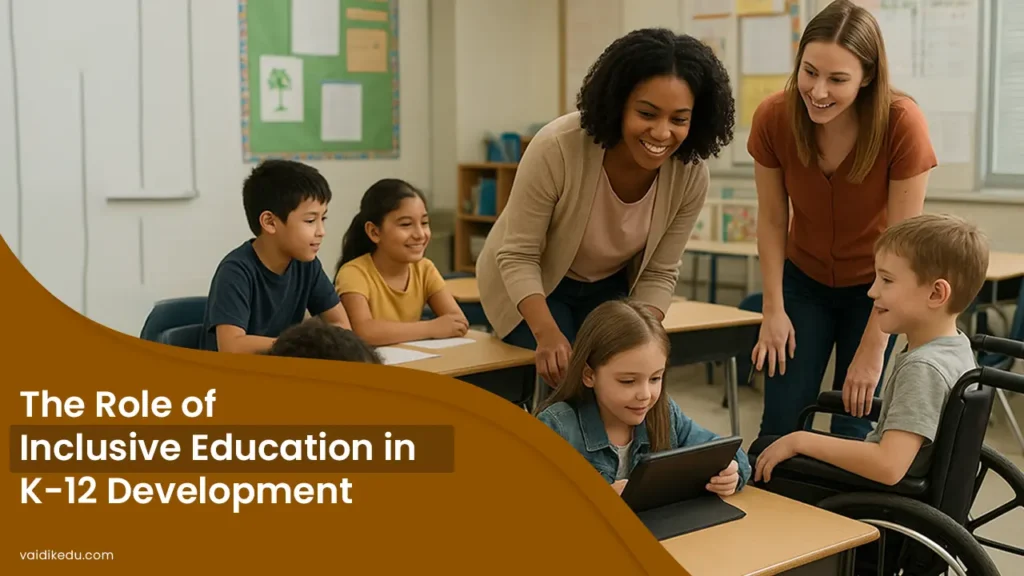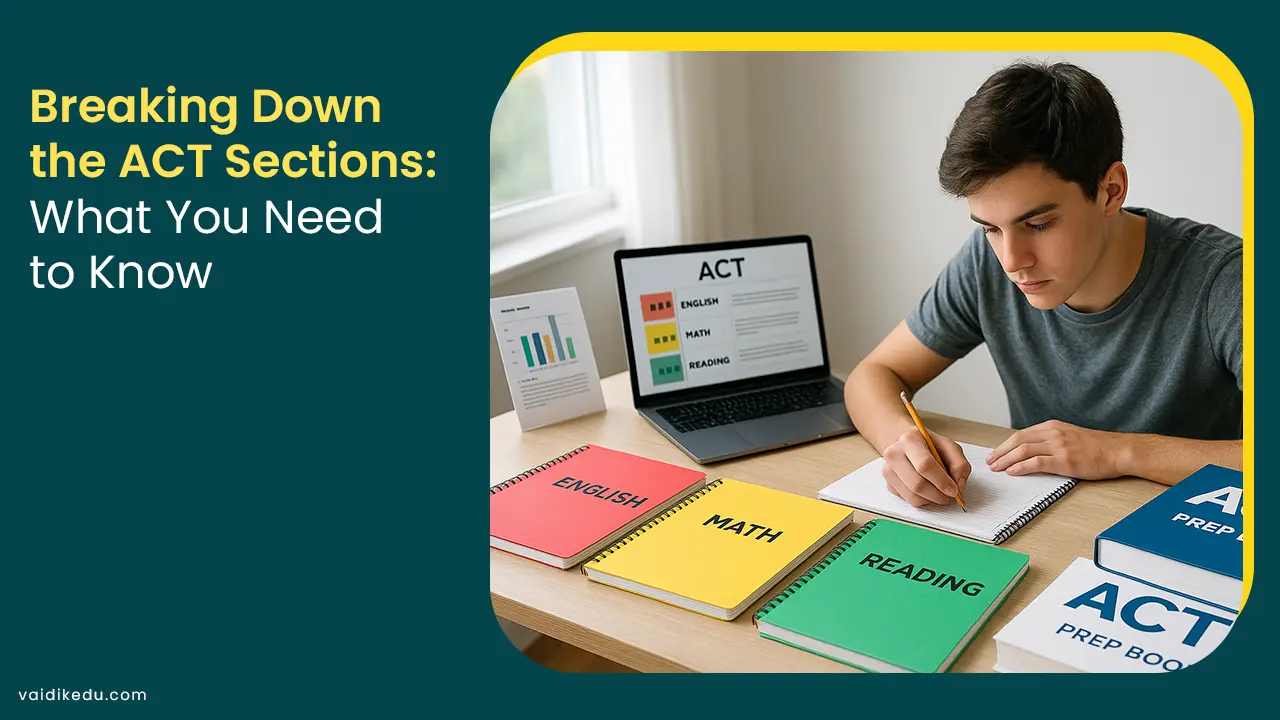Educational training and teaching are one of which the goal is given to all students, their power or backs such as its reach, not educational progress. It focuses on ensuring that students with diverse needs such as those with disabilities, different learning styles, or from marginalized communities are included in general education settings rather than being segregated into special classes or schools.
The Key Principles of inclusive Education:
The basic principles of inclusive education are as follows:
- A variety of activities as power to strengthen the values of visions and powers in documents.
- It is easy to make sure that all educational areas are easy for everyone, where the disabled organs are.
- Directors: Teachers lure their educational program to meet the needs of the students.
- Communication: To encourage teachers, teachers, students, families and communities.
The goal is one assistant and the same education of each student’s value, respect, and win.
The Role of inclusive Education in K-12 development:
The members play a central role in an advanced education of everyone who thrives on the environment that helps all students, the needs of the needs. How to help here:
- Social inclusion increases The Fit
The accompanying education ensures that students are united in all beauty and the results. This increases social associations, reduces disregard and contributes to the most perfect citizens.
These students encourage these students to associate with their partners from different races, work in it, compassion, and celebrate the difference.
- Study To increase
By making the guidelines unique and providing personal support, the study helps all students, where they can have a disability or choose other choices.
It can be seen in all existing classrooms that students who can feel needed help and have provided the food with the academics around that fellow students.
- It Leads Disciples For The Whole World
Adding to K-12 The Education helps to provide the necessary knowledge to accomplish public service. They learn how to cooperate with others and praise problems in groups and visions.
This leads those who prepare for the future education, social and commercial situations, where they are meeting people from different backgrounds.
- Encourages Development of Emotional And Social Skills
Inclusive classrooms provide opportunities for students to develop important social and emotional skills, such as collaboration, communication, and conflict resolution. This knowledge is crucial for overall development and success in later life.
Students learn empathy and respect for people with different needs, experiences, and perspectives.
- Teachers’ Development is Good
The affiliated classroom trains teachers to use a variety of instructional strategies, adapt to learning needs, and collaborate with experts. This enhances their ability to manage the classroom and meet the unique needs of each student.
Teachers also benefit from more challenging, active learning experiences as they learn to integrate instructional strategies and assessments.
- It Builds Self-Esteem And Confidence:
When students with disabilities or other challenges are included in large classrooms, they are given the same learning opportunities as their peers and this can greatly increase their motivation and appeal.
The inclusive environment encourages constructive growth, where all students, regardless of their background, feel they can succeed academically.
- It Reduces Segregation And Discrimination
By hosting students with needs, inclusive education helps break down the barriers of segregation that have historically separated students with disabilities or students from marginalized groups.
It helps reduce negative stereotypes and discrimination, and fosters an inclusive culture that is valued by all students.
- The Law And Morality
In many countries, all disciples have ordered the doctrines that are involved in all the disciples have ordered the laws and orders to be all. This law ensures that children with disabilities or educational choices are obtained by their archaeological rights, enhancing the judge and lawyer systems.
- It Ensures Equal Education
Inclusive education provides equal opportunities for all students, including those with disabilities, learning challenges, or marginalized backgrounds, to receive a quality education. Without inclusion, these students can be spatially isolated, denying them the same learning opportunities as their peers.
Implementing Effective inclusive Education Practices
Acknowledging and addressing stakeholder barriers is an important step in implementing them in educational practices. In order to provide additional support and resources for students with these disabilities, the curriculum is modified to fulfill all teachers.
A supportive and inclusive educational environment is also important. The culture of this class can be created that the benefits of diversity provide the benefits and encourage cooperation and collaboration.
Inclusive implementation is essential to ensure adequate resources and support for implementation of educational practices. She should be given special instruction by teachers, assistants, paramedics or other helpers so that more effective results need to be provided. It can also come here to provide assistant technology or other residences here.
It is also important to encourage active participation and adherence. It can be offered to provide opportunities for peer support and mentoring, or in this case, each student must design an individual education plan (IEEPS).
Best Practices For Inclusive Education:
Another better exercise called University for Learning (ODL) is accompanied by education. For this reason, all students need to make changes in the course, where there are disabled organs.
Another excellent one, including everyone, is a teacher. For this reason, all students need to make changes in the course, where there are disabled organs.
Educational support and guidance are good behavior. There are opportunities to help and teach each other, with a lot of English and a good education of education
Personal Education Activity (IEP) for everyone education is also a good thing. In addition, personal plans will be organized for each student to meet their specific needs and study goals.
Conclusion
In summary, inclusive education in K-12 development is essential for building a more just and effective educational system. It is not only helpful to students with special needs but also enriches the entire learning community, preparing all students for life in a diverse world.
Frequently Asked Questions
Inclusive education fosters the social, emotional, and intellectual development of all students by promoting diversity, empathy, and solidarity. It gives students a sense of independence and helps them develop the skills they need to live and work in a diverse society. It also encourages teachers to use a variety of teaching strategies that meet the needs of all students, and enhance the overall quality of education.
Accompanying disability gives disabled students a chance to have higher study opportunities and opportunities to communicate with peers in study and in life situations. It helps to improve their social skills, self-respect and the influences of learning by means of a helpful and effective study environment.
While inclusive education offers many benefits, it can also present challenges such as limited resources, inadequate teacher training, and potential difficulties in balancing learning needs. Schools may face challenges in providing individualized support, and teachers may need additional time and resources to effectively meet the needs of all students.
Inclusive education schools can provide professional development for teachers, light courses, educators, families, family and communities. Regular assessment and action planning can benefit all students according to learning experience. Sufficient resources with specialized support services are also needed.









